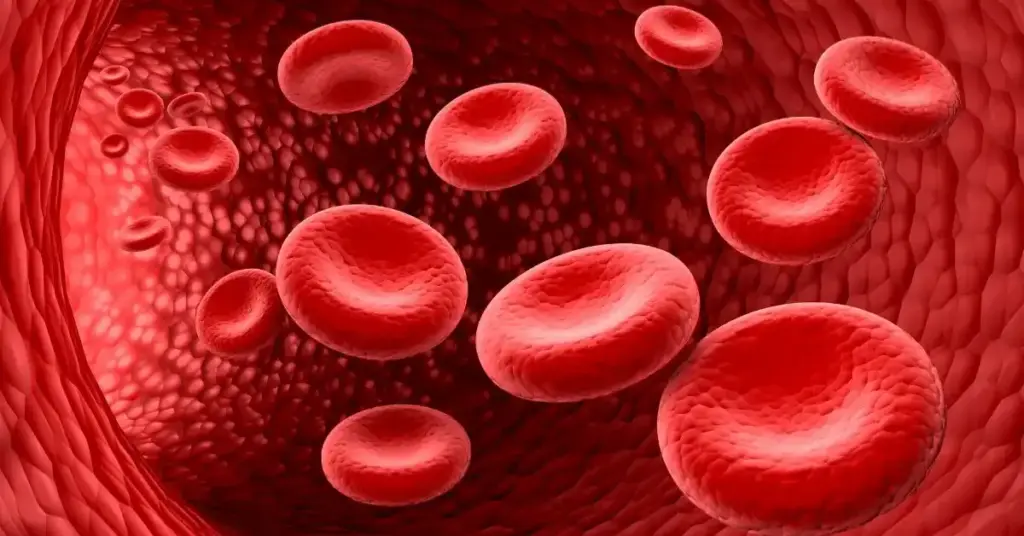
Pediatric hematology is a specialized field focused on diagnosing and managing blood disorders in children, from infancy through adolescence. These conditions range from benign anemias to complex malignancies like leukemia. As children’s blood systems differ significantly from adults, tailored diagnostic approaches and treatment plans are essential to ensure proper growth and development.
Early diagnosis and intervention in pediatric hematologic disorders are crucial, as untreated conditions can lead to severe complications including developmental delays, organ damage, or life-threatening crises. Common disorders managed include sickle cell disease, thalassemia, iron-deficiency anemia, and various clotting abnormalities. Advanced therapies, genetic screenings, and supportive care strategies have significantly improved outcomes, especially with access to specialized pediatric hematology treatment in Chennai.
Dedicated pediatric hematology units offer multidisciplinary care, encompassing not just medical treatment but also nutritional support, counseling, and family education. With precise and compassionate care, children with hematologic conditions can lead active, fulfilling lives and achieve long-term wellness.
Pediatric anemias are among the most common blood disorders in children, often presenting with fatigue, pallor, irritability, and poor appetite. Anemia occurs when red blood cell levels or hemoglobin concentrations are below age-appropriate thresholds, affecting oxygen transport throughout the body. Causes range from nutritional deficiencies to chronic diseases and genetic conditions.
Diagnosis is established through a complete blood count (CBC), reticulocyte count, peripheral smear, and iron studies. Treatment focuses on addressing the underlying cause, with iron supplements, vitamin replacement, or managing chronic illness as needed. Nutritional counseling plays a critical role in preventing recurrence, especially during growth spurts. Continuous monitoring ensures sustained hemoglobin levels and supports normal physical and cognitive development. Early correction of anemia significantly improves a child’s vitality, academic performance, and overall well-being.
Congenital hematologic syndromes are inherited blood disorders present from birth, often requiring lifelong management. These conditions stem from genetic mutations that affect red or white blood cells, platelets, or the coagulation cascade. Prompt identification allows timely intervention, preventing complications and supporting quality of life.
Evaluation includes genetic testing, bone marrow examination, and family history assessment. Treatment varies from supportive care with transfusions to curative options like stem cell transplantation. Genetic counseling helps families understand inheritance patterns and future pregnancy risks. Multidisciplinary care ensures comprehensive support, addressing both medical and psychosocial needs. Despite their complexity, children with congenital syndromes can thrive with individualized treatment plans. Advances in gene therapy and molecular medicine offer hope for long-term cures and improved outcomes in pediatric hematology.
Thalassemia is a genetic blood disorder characterized by reduced or absent production of hemoglobin chains, leading to anemia and iron overload. Specialized thalassemia centers play a vital role in the long-term care of affected children by providing comprehensive, protocol-driven management in one place. Regular blood transfusions, iron chelation, and psychosocial support are key components.
Multidisciplinary teams include pediatric hematologists, nurses, psychologists, and social workers to address the complex needs of children and their families. Long-term goals focus on minimizing complications such as heart failure, growth delay, or infections. With evolving curative strategies like bone marrow transplantation and gene therapy trials, thalassemia centers offer not just disease control but potential lifelong freedom from transfusions. Empowering families through education and care coordination remains the cornerstone of these centers.
Iron overload is a major concern in children with chronic transfusion-dependent anemias, especially those with thalassemia or sickle cell disease. Repeated transfusions introduce excessive iron into the body, which accumulates in organs like the liver, heart, and endocrine glands, leading to toxicity and organ dysfunction.
Managing iron overload requires careful balance—adequate chelation must be maintained without causing toxicity. Adherence is often a challenge in pediatric patients, making education and routine follow-up crucial. Nutrition counseling is also important, as dietary iron may need regulation. Preventing long-term complications like cardiomyopathy, diabetes, and liver fibrosis improves survival and life quality. Iron monitoring must be integrated into routine care protocols in specialized pediatric hematology settings to ensure optimal outcomes.
Childhood leukemia is the most common cancer in children, with acute lymphoblastic leukemia (ALL) and acute myeloid leukemia (AML) being the predominant types. Treatment protocols are designed to eliminate leukemic cells while minimizing long-term side effects. These protocols are carefully structured into phases to ensure complete remission and sustained disease control.
Protocols are evidence-based and often part of international cooperative groups, ensuring consistency and quality care. Emotional support, academic continuity, and sibling counseling are integral. With modern treatment, survival rates for childhood leukemia have improved significantly. Personalized treatment pathways and improved supportive care have transformed leukemia from a fatal diagnosis to a curable disease in many children.
Comprehensive Diagnostic Evaluation: Pediatric hematology treatment in Chennai begins with detailed diagnostic procedures such as complete blood counts, bone marrow aspiration, genetic testing, and immunophenotyping to identify the exact nature of the blood disorder.
Individualized Treatment Planning: Each child’s condition is assessed by a multidisciplinary team to design a customized plan that may include chemotherapy, immunotherapy, or targeted molecular therapy, ensuring precision and safety.
Advanced Therapeutic Techniques: Leading centers use cutting-edge approaches like stem cell transplantation and biologic therapies, enhancing recovery rates and minimizing long-term complications.
Supportive Care Integration: Alongside medical interventions, nutritional counseling, psychological support, and infection control are prioritized to maintain the child’s overall well-being.
Continuous Monitoring and Follow-up: Regular evaluations and laboratory assessments help track treatment response, adjust therapy when needed, and prevent relapse effectively.
Family-Centered Approach: Parents and caregivers are actively involved throughout the process, ensuring emotional support and adherence to prescribed treatment protocols.
Pediatric hematology addresses some of the most complex and emotionally challenging conditions in children. From simple anemias to intricate genetic disorders and malignancies, the spectrum is vast, demanding specialized care and continuous innovation. Early diagnosis, individualized therapy, and long-term monitoring are critical in improving outcomes and ensuring each child’s right to a healthy future.
At Kannappa Memorial Hospital, our pediatric hematology unit is committed to delivering compassionate, evidence-based care tailored to young patients. We bring together advanced diagnostics, dedicated specialists, and a family-centered approach to support every child’s journey from diagnosis to recovery. Through expertise and empathy, we aim to ensure brighter, healthier lives for children facing blood-related challenges. With our comprehensive pediatric hematology treatment in Chennai, we focus on combining cutting-edge medical care with personalized attention to achieve the best possible outcomes for every child.
Pediatric hematology is a specialized field focused on diagnosing and managing blood disorders in children, from infancy through adolescence. These conditions range from benign anemias to complex malignancies like leukemia. As children’s blood systems differ significantly from adults, tailored diagnostic approaches and treatment plans are essential to ensure proper growth and development.
Early diagnosis and intervention in pediatric hematologic disorders are crucial, as untreated conditions can lead to severe complications including developmental delays, organ damage, or life-threatening crises. Common disorders managed include sickle cell disease, thalassemia, iron-deficiency anemia, and various clotting abnormalities. Advanced therapies, genetic screenings, and supportive care strategies have significantly improved outcomes, especially with access to specialized pediatric hematology treatment in Chennai.
Dedicated pediatric hematology units offer multidisciplinary care, encompassing not just medical treatment but also nutritional support, counseling, and family education. With precise and compassionate care, children with hematologic conditions can lead active, fulfilling lives and achieve long-term wellness.
Pediatric Anemias
Congenital Hematologic Syndromes
Thalassemia Centers
Iron Overload Management
Childhood Leukemia Protocols
Procedure
Conclusion
Pediatric anemias are among the most common blood disorders in children, often presenting with fatigue, pallor, irritability, and poor appetite. Anemia occurs when red blood cell levels or hemoglobin concentrations are below age-appropriate thresholds, affecting oxygen transport throughout the body. Causes range from nutritional deficiencies to chronic diseases and genetic conditions.
Diagnosis is established through a complete blood count (CBC), reticulocyte count, peripheral smear, and iron studies. Treatment focuses on addressing the underlying cause, with iron supplements, vitamin replacement, or managing chronic illness as needed. Nutritional counseling plays a critical role in preventing recurrence, especially during growth spurts. Continuous monitoring ensures sustained hemoglobin levels and supports normal physical and cognitive development. Early correction of anemia significantly improves a child’s vitality, academic performance, and overall well-being.
Congenital hematologic syndromes are inherited blood disorders present from birth, often requiring lifelong management. These conditions stem from genetic mutations that affect red or white blood cells, platelets, or the coagulation cascade. Prompt identification allows timely intervention, preventing complications and supporting quality of life.
Evaluation includes genetic testing, bone marrow examination, and family history assessment. Treatment varies from supportive care with transfusions to curative options like stem cell transplantation. Genetic counseling helps families understand inheritance patterns and future pregnancy risks. Multidisciplinary care ensures comprehensive support, addressing both medical and psychosocial needs. Despite their complexity, children with congenital syndromes can thrive with individualized treatment plans. Advances in gene therapy and molecular medicine offer hope for long-term cures and improved outcomes in pediatric hematology.
Thalassemia is a genetic blood disorder characterized by reduced or absent production of hemoglobin chains, leading to anemia and iron overload. Specialized thalassemia centers play a vital role in the long-term care of affected children by providing comprehensive, protocol-driven management in one place. Regular blood transfusions, iron chelation, and psychosocial support are key components.
Multidisciplinary teams include pediatric hematologists, nurses, psychologists, and social workers to address the complex needs of children and their families. Long-term goals focus on minimizing complications such as heart failure, growth delay, or infections. With evolving curative strategies like bone marrow transplantation and gene therapy trials, thalassemia centers offer not just disease control but potential lifelong freedom from transfusions. Empowering families through education and care coordination remains the cornerstone of these centers.
Iron overload is a major concern in children with chronic transfusion-dependent anemias, especially those with thalassemia or sickle cell disease. Repeated transfusions introduce excessive iron into the body, which accumulates in organs like the liver, heart, and endocrine glands, leading to toxicity and organ dysfunction.
Managing iron overload requires careful balance—adequate chelation must be maintained without causing toxicity. Adherence is often a challenge in pediatric patients, making education and routine follow-up crucial. Nutrition counseling is also important, as dietary iron may need regulation. Preventing long-term complications like cardiomyopathy, diabetes, and liver fibrosis improves survival and life quality. Iron monitoring must be integrated into routine care protocols in specialized pediatric hematology settings to ensure optimal outcomes.
Childhood leukemia is the most common cancer in children, with acute lymphoblastic leukemia (ALL) and acute myeloid leukemia (AML) being the predominant types. Treatment protocols are designed to eliminate leukemic cells while minimizing long-term side effects. These protocols are carefully structured into phases to ensure complete remission and sustained disease control.
Protocols are evidence-based and often part of international cooperative groups, ensuring consistency and quality care. Emotional support, academic continuity, and sibling counseling are integral. With modern treatment, survival rates for childhood leukemia have improved significantly. Personalized treatment pathways and improved supportive care have transformed leukemia from a fatal diagnosis to a curable disease in many children.
Comprehensive Diagnostic Evaluation: Pediatric hematology treatment in Chennai begins with detailed diagnostic procedures such as complete blood counts, bone marrow aspiration, genetic testing, and immunophenotyping to identify the exact nature of the blood disorder.
Individualized Treatment Planning: Each child’s condition is assessed by a multidisciplinary team to design a customized plan that may include chemotherapy, immunotherapy, or targeted molecular therapy, ensuring precision and safety.
Advanced Therapeutic Techniques: Leading centers use cutting-edge approaches like stem cell transplantation and biologic therapies, enhancing recovery rates and minimizing long-term complications.
Supportive Care Integration: Alongside medical interventions, nutritional counseling, psychological support, and infection control are prioritized to maintain the child’s overall well-being.
Continuous Monitoring and Follow-up: Regular evaluations and laboratory assessments help track treatment response, adjust therapy when needed, and prevent relapse effectively.
Family-Centered Approach: Parents and caregivers are actively involved throughout the process, ensuring emotional support and adherence to prescribed treatment protocols.
Pediatric hematology addresses some of the most complex and emotionally challenging conditions in children. From simple anemias to intricate genetic disorders and malignancies, the spectrum is vast, demanding specialized care and continuous innovation. Early diagnosis, individualized therapy, and long-term monitoring are critical in improving outcomes and ensuring each child’s right to a healthy future.
At Kannappa Memorial Hospital, our pediatric hematology unit is committed to delivering compassionate, evidence-based care tailored to young patients. We bring together advanced diagnostics, dedicated specialists, and a family-centered approach to support every child’s journey from diagnosis to recovery. Through expertise and empathy, we aim to ensure brighter, healthier lives for children facing blood-related challenges. With our comprehensive pediatric hematology treatment in Chennai, we focus on combining cutting-edge medical care with personalized attention to achieve the best possible outcomes for every child.
A child may be referred to hematology if they show signs of anemia, unusual bruising, frequent infections, or persistent fatigue. Hematologists specialize in diagnosing and treating disorders of the blood, bone marrow, and lymphatic system. Referral ensures expert evaluation, which may include genetic testing or bone marrow studies to determine the cause and initiate timely treatment.
Pediatric hematologists are specialists trained to manage blood disorders in children. You may be referred if your child has unexplained low blood counts, clotting issues, sickle cell disease, or suspected leukemia. These conditions often require close monitoring, specialized tests, and age-appropriate treatments that a general pediatrician may not be equipped to provide effectively.
A child should see a hematologist if they experience frequent nosebleeds, delayed wound healing, chronic fatigue, enlarged lymph nodes, or pallor. Recurrent infections or abnormal blood test results can also warrant a consultation. Early specialist involvement can lead to timely diagnosis, preventing progression of potentially serious blood disorders and ensuring better health outcomes.





